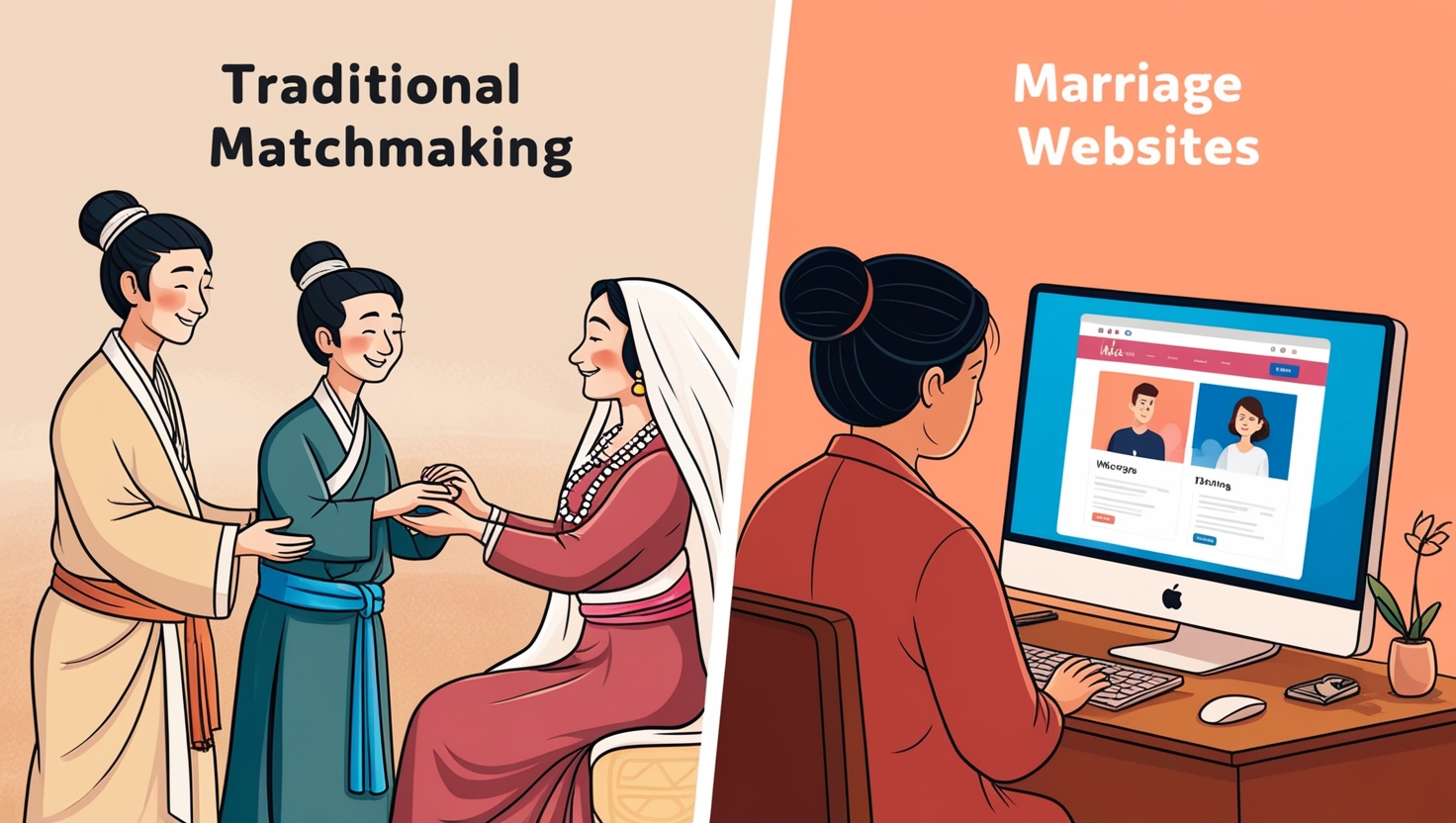Traditional Matchmaking vs Marriage Websites – Which Is Better?

Strong 8k brings an ultra-HD IPTV experience to your living room and your pocket.
In the quest for finding the ideal life partner, people in Pakistan and beyond have traditionally relied on matchmakers, family recommendations, and social circles. However, the rapid rise of marriage websites in Pakistan has introduced a new digital route to companionship. With both methods deeply embedded in culture and modern technology, the debate continues—which is better: traditional matchmaking or online marriage websites?
Each has its strengths, drawbacks, and distinct characteristics. Choosing the best approach depends on your personality, lifestyle, and what you value most in a relationship and life partner.
Let’s explore both options in detail to help you decide which one aligns better with your needs.
1. Understanding Traditional Matchmaking
Traditional matchmaking in Pakistan and many South Asian cultures is more than a process—it’s a family tradition. Matchmaking involves recommendations from family friends, relatives, or professional matchmakers who present potential rishtas based on shared caste, sect, religion, family background, and reputation.
In many cases, girls and boys don’t even meet until families have done the initial vetting. The first meetings are formal—usually over tea, where both families assess each other just as much as the couple assesses compatibility.
Pros of Traditional Matchmaking:
- Family involvement ensures cultural compatibility.
- Trusted networks minimize the risk of deception.
- The emotional and social support of both families is available from the start.
- Matchmakers often provide valuable insights and mediation.
Cons of Traditional Matchmaking:
- Limited choices based on family contacts and location.
- Less personal autonomy, especially for women.
- Focus on family status, caste, or financial standing can outweigh personality and compatibility.
- Meetings can be awkward, especially if the individuals aren’t allowed to talk freely.
2. Marriage Websites: The Digital Evolution
Marriage websites like SimpleRishta.com, Shaadi.com, SingleMuslim, PakistanLounge, and Muzmatch have redefined how people search for rishtas. With detailed profiles, filters, and personalized recommendations, individuals now have more control and flexibility in choosing a life partner.
These platforms allow users to filter matches based on profession, education, religious values, sects, and even lifestyle preferences. Communication can begin through messages, and many platforms provide photo privacy, identity verification, and profile moderation.
Pros of Marriage Websites:
Wider pool of candidates from across cities, countries, and communities.
More personal autonomy to choose and reject matches.
Detailed search filters help target your ideal partner.
Efficient and time-saving—no need for endless rishta meetings.
Cons of Marriage Websites:
Risk of fake profiles and catfishing.
Less involvement from family may lead to resistance or lack of support.
Overwhelming number of options can make decision-making harder.
Trust issues due to anonymity or misrepresentation.
3. Privacy and Comfort Level
Privacy plays a significant role in the matchmaking process. Traditional methods often involve extended family and social circles, which can make things uncomfortable if a rishta is rejected. Word gets around quickly, leading to unnecessary gossip or awkwardness.
On the other hand, marriage websites give you more discreet control. You can keep your photo private, message only those who interest you, and decline without drama. If you’re a private person or don’t want everyone knowing your rishta updates, digital platforms may be more comfortable.
4. Compatibility and Control
Traditional matchmaking often prioritizes family compatibility over individual compatibility. Families may focus on religion, caste, financial status, or parental connections rather than emotional alignment or shared values.
Online platforms flip that narrative. You control the process, ask your own questions, and assess compatibility based on your life goals. Many websites also offer psychological or lifestyle questionnaires to help you find someone who’s aligned with your mindset—not just your family’s checklist.
5. Speed vs. Stability
Traditional matchmaking can be slow. It often takes weeks or months just to arrange a single rishta meeting. Add to that the family-level discussions and pressure, and the process can feel dragged out and exhausting.
Marriage websites offer speed and flexibility. You can browse, connect, and communicate on your own schedule. But speed doesn’t always guarantee success. Sometimes people rush into online matches without proper vetting, leading to mismatches or scams.
Traditional routes may be slower but can bring more stability because families are heavily involved in ensuring compatibility and long-term commitment.
6. Generational Mindset
Older generations often trust traditional matchmakers because that’s what worked for them. They believe in reputation, family referrals, and the involvement of elders. That’s why many parents may feel skeptical about marriage websites and associate them with casual dating or unserious intentions.
However, the younger generation values independence and modern communication. They want to understand their future spouse personally before making such a big decision. Digital rishta platforms appeal to these values by offering a blend of traditional purpose with modern tools.
Some families now use both methods simultaneously—traditional rishtas for elders, and online searches for the individuals involved.
7. Success Rates and Stories
Both methods have their share of success stories and failures. Many happily married couples have met through family friends, just as many successful matches have come from online rishta apps. The key lies in how well the match is handled after the initial introduction.
Some of the most successful outcomes come from hybrid approaches, where families allow their children to explore online profiles but stay involved in the vetting and approval process.
The advantage of a hybrid approach? It combines emotional maturity, personal compatibility, and family support—which are all essential ingredients for a strong marriage.
8. Safety and Scams
One downside of marriage websites is the potential for scams or dishonest users. Fake profiles, identity theft, or misleading information can result in heartbreak or worse—financial exploitation.
Traditional matchmaking usually offers better security since the match is vetted through trusted networks. However, even traditional setups aren’t immune to fraud—dowry scams and misrepresentations still happen.
To stay safe online:
Use websites with profile verification.
Don’t share personal contact details too early.
Involve your family in the process.
Always meet in public places first.
Which Is Better? The Final Verdict
There’s no one-size-fits-all answer.
Choose Traditional Matchmaking if:
You prefer family involvement and guidance.
Cultural and community ties are your top priority.
You value tried-and-tested methods and want a slower, more secure approach.
Choose Marriage Websites if:
You want control over your rishta journey.
You live abroad or have a limited family network.
You’re looking for compatibility based on lifestyle and values, not just tradition.
Ultimately, the best approach is the one that feels right for you. Whether it’s through your grandmother’s connections or a verified online profile, what matters most is finding someone who shares your vision for life, love, and partnership.
Note: IndiBlogHub features both user-submitted and editorial content. We do not verify third-party contributions. Read our Disclaimer and Privacy Policyfor details.



